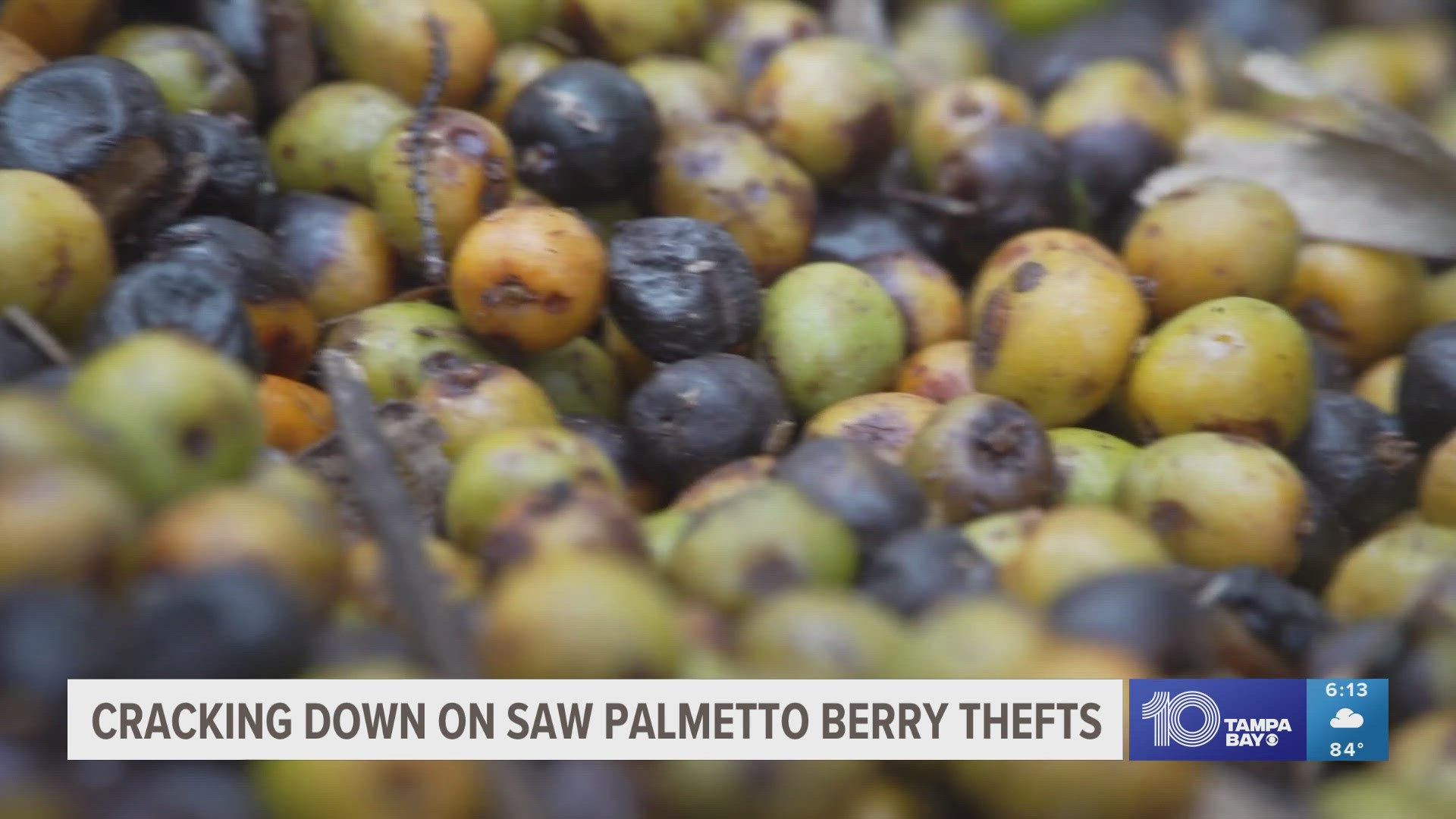HILLSBOROUGH COUNTY, Fla. — The Hillsborough State Attorney’s office announced it’s launching a new position by assigning one of its prosecutors to concentrate specifically on agricultural crimes which might involve anything from cattle to crops.
However, one of their key focuses is on something called a Saw Palmetto Berry.
Joe Sumner, a cattle rancher and farmer in southern Hillsborough County, says increasingly he’s had people cut through his fence and sneak onto his property to illegally swipe the naturally occurring Saw Palmetto Berries that grow on his land.
“We have to literally patrol our fences daily. If not multiple times a day,” he said. “And then when we get calls at two and three in the morning about cattle getting out on the road when we just checked the fence the week before it's very frustrating on our part.”
Saw Palmetto Berries harvested without a permit can sell on the black market for more than three dollars a pound.
They’re sought after for their properties as a dietary supplement, and some believe they’re also a natural treatment for prostate and urinary tract issues.
“Very often, they are sold to China to be manufactured into supplements that will help with urological issues,” said Hillsborough State Attorney Suzy Lopez.
On Wednesday, Lopez announced they would be assigning a prosecutor to these and other agriculture-related cases full-time.
Stealing the berries has become such a problem that on July 1, Florida enacted a new law making it a felony.
“And I want the public to know that we will stand up for the men and women in our agriculture community, whether it is the theft of a saw berry, whether it's trespassing upon their land, the farm bill also addressed that,” Lopez said.
“We are doing all this great work, but that work means nothing If people won't be held accountable in the prosecutorial phase of the legal round,” said Col. Anthony Collins with the Hillsborough County Sheriff’s Office. “So, it's overwhelming to know that we have the support of our state attorney's office.”
Stealing the berries is also considered a crime against the environment since they’re a food source for about 200 native species.
“Anything eats it. Squirrels eat it. Deer eat it. Bears eat it. Hogs eat it,” said Deputy Red Jones.
Jones says the plants are also slow to grow. So, collecting the berries, sometimes hundreds of pounds at a time, can be devastating.
“If we don't have this plant here this whole ecosystem gets thrown out of whack,” Deputy Jones said. “And once an ecosystem is out of whack, man can't put this back.”
The Hillsborough State Attorney's office says the first case under this program involves the arrests of two people about two weeks ago and nearly 800 pounds of Saw Palmetto berries confiscated.
FWC recently announced it had arrested a handful of suspects for allegedly sneaking into a state park in the West Palm Beach area, and allegedly harvesting about 10,000 pounds of Saw Palmetto berries illegally.
Seven people were arrested in that case with each now faces felony charges and up to five years in prison.
Prosecutors hope it will be a deterrent once word spreads of the increased penalties and their stepped-up enforcement efforts.

